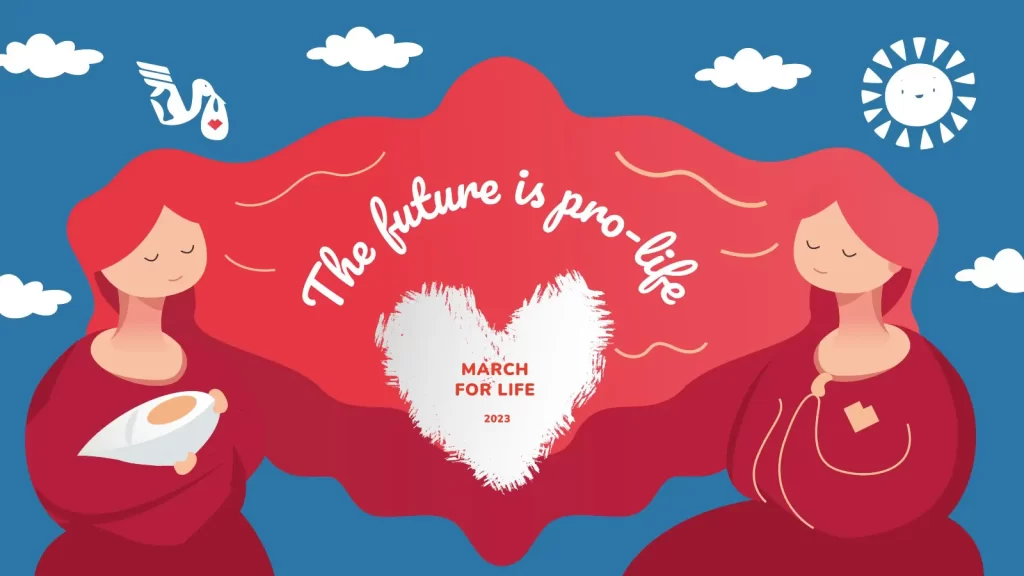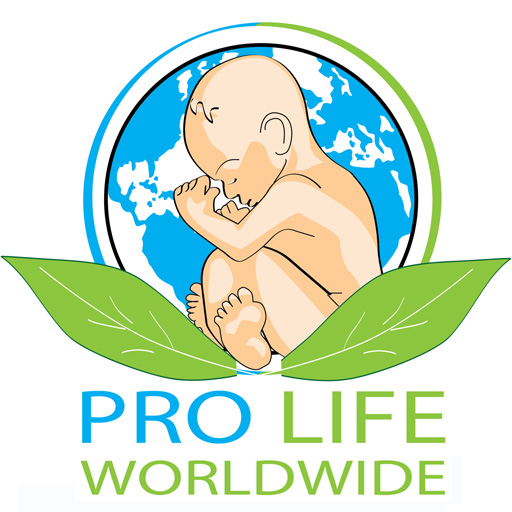Organizations from all over Romania and the Republic of Moldova have prepared a new edition of the Month for Life, which culminates on Saturday, March 25, with the March for Life. This year’s theme: “The Future Is Pro-Life”.
“The pro-life future starts now,” is stated in the press release of the event. “Hope and determination in the present are two pillars of a future that celebrates life.”
This theme aims to raise awareness and engage participants and society in building a pro-life future – a future in which every pregnant woman in need will be supported to give birth to her children and in which the life of every born and unborn child will be valued fully, regardless of age or health status, whether boy or girl.
“A society that does not protect its children and care for their potential offspring will have no future,” warn the organizers.
Local organisers are independent of each other. Each organiser takes responsibility for both the activities organ- ised and the message conveyed.
In Bucharest, the March for Life 2023 – “The future is pro-life” is organised by the “Students for Life” Association in Bucharest and the “Romania for Life” Association and will take place on Saturday, March 25, starting at noon, on the route Unirii Park – Tineretului Park.
Why a legal ban on abortion is not the solution
“We address all individuals, which is why our approach is apolitical, and nondenominational, it does not advocate the prohibition of abortion and opposes any form of women’s exclusion,” the press release further mentions.
Why?
Because “we can only do good for someone if they accept our good intentions and collaborate with us. Since only then will society change for the better, we want to bring about a shift in the hearts of individuals (…) We cannot have as our objective a law that forbids an evil that people tolerate; our ideal is to develop a society that protects the weak out of love and responsibility,” explain the organizers.
That is why the March for Life in Romania and the Republic of Moldova is focused not on interdictions, but on promotive affirmative public policies that can create a favourable environment for raising children and supporting women.
Proposals of the March for Life Romania and the Republic of Moldova
- Establishing support centres for pregnant women, where women can receive free psychological counselling, coaching, social assistance, or whatever support they need to overcome difficulties arising during pregnancy;
- Training medical staff and providing complementary non-medical support that addresses the needs and well-being of women during birth.
- Granting an allowance to pregnant women after the 14th week of pregnancy to cover special needs – this can be done by extending the child-raising allowance during the last months of pregnancy;
- Granting a child-raising allowance at the level of the minimum wage to women who have not worked in the last 12 months before giving birth;
- Creating the legal possibility for a pregnant woman who considers that she cannot raise the child to start the adoption procedure from the time of pregnancy, with a time limit after birth in which she can change her mind, following the model of adoption from birth used in the USA, UK, and Australia;
- Legislating open adoption, which could make it easier to place for adoption or accept for adoption children who cannot be cared for by their parents or biological relatives;
- Supporting pregnant teenagers to complete their pregnancy and encouraging the mentality that such a pregnancy can be a chance for a foster family to provide a child with a beautiful life;
- Enhancing the value in society of all those involved in adoption to eliminate the contemptuous mentality towards adopted children, adoptive parents, and, above all, towards mothers or parents who place their children for adoption when significant difficulties affect their ability to take care of their upbringing properly;
- Developing programmes for the prevention of violence, abuse, and sexual offences that respect the developmental stages of children and parental rights when addressing minors, and support and protection programmes for victims; sexual abuse and sexual offences are traumatic events that are extremely difficult to overcome and lead to a spiral that often ends in a crisis pregnancy;
- Legislating the placement of special ‘baby box’ facilities in the outside walls of hospitals, where mothers who feel they cannot care for their babies can safely place them – as a last resort in a crisis, they can prevent the pre-killing and abandonment of newborn babies; these devices are legal in many countries around the world.
How to change the world
- Men can support vulnerable pregnant women, even if they are not the fathers of the children.
- Women who have overcome a pregnancy crisis can offer testimonies of what this really means.
- Public figures can shape public attitudes and help implement social protection measures.
- Ordinary people who know women in a crisis pregnancy can help them in various ways, including through prayer.
“You who pray for those who risk losing their lives and for those on whom their lives depend, you also help unborn children and their parents,” is stated in the press release of the Month & March for Life.
What is the March for Life
The March for Life is dedicated to preserving and safeguarding the lives of children from the time of conception. It strives to enhance society’s understanding of the full humanity of unborn children and the need to help women experiencing problems during pregnancy so they may give birth safely and confidently.
The inaugural March for Life was held in the United States fifty years ago. Then, throughout the years, Marches for Life have been conducted in most European and North American nations.
Although the law changed in the USA last year and the member states of the American federation have now the right to legislate abortion according to local culture and the wish of the constituencies, the March for Life continues in America and was organized this year as it has been for the last 50 years.
Lynn Fitch, Attorney General who won last year the case which changed the abortion law in the Unites States, said at the 2023 March for Life held in Washington: “We have overturned Roe v Wade (the US abortion law – ed.note) with our Mississippi Dobbs case. We have returned abortion policymaking to the people – to you. But this is not the end of our journey. It is only the beginning.”
“Until we can give women when they are most vulnerable what they need so they and their children may thrive until we can make the changes in our laws that reflect our compassion for all life, until we can change all hearts and minds in our fellow Americans, until then, life remains fragile and the embrace of human dignity remains aspirational,” Lynn Fitch explained.
In Romania, this year sees the 13th nationwide edition of the event.
Every year, the date chosen for the March for Life is March 25 or the closest Saturday, in order to put the event under the protection of a great Christian feast: the Annunciation, when the Church celebrates the conception of our Lord and Saviour Jesus Christ in Virgin Mary’s womb.




